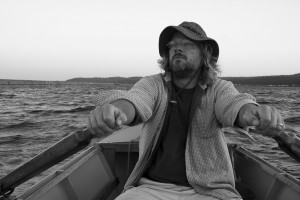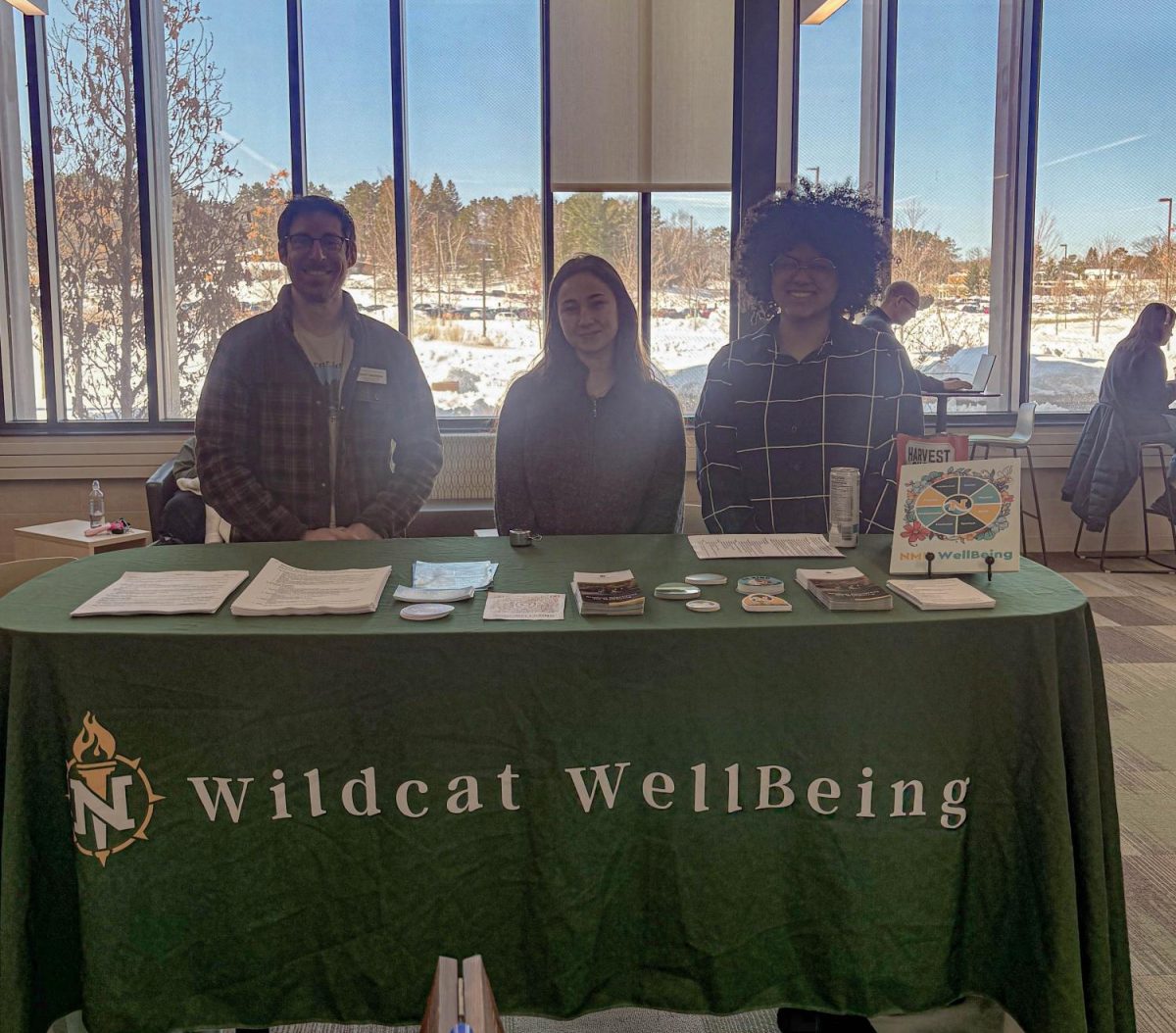Black mamba of the front tire
over wet streets, the wet streets,
after-rain falling from the neighborhood leaves,
luminescence of lamp posts’ lamps up
through the trees.
This excerpt from Jonathan Johnson’s poem “Night Bicycle,” as read by Garrison Keillor on NPR, is set in Marquette. In fact, much of his poetry is. Johnson’s return to NMU as part of the English department’s Visiting Writer series will mark the first U.P. fall Johnson has seen in 15 years.

“I cannot wait to walk through park cemetery, out to the island [Presque Isle] and, of course, from Munising,” Johnson said. His planned two-day walk from Munising to Marquette will be one in a series of long walks and runs that for him commemorate important events in his life.
Johnson will give a reading on Thursday, Oct. 17 in the Erie Room of the University Center and will visit creative writing classes, a poetry workshop, a dramatic writing workshop, and a nursing class.
“I’m especially excited about [the nursing] class,” he said, where he will discuss, as he does in his memoir “Hannah and the Mountain,” the importance of medical professionals in the lives of patients and their families.
Johnson has a B.A. in philosophy (1990) and an M.A. in English (1992) from NMU, his Ph.D from Western Michigan University, and teaches in the MFA creative writing program at Eastern Washington University.
He has published two books of poetry (“Mastadon, 80% Complete” and “In the Land we Imagined Ourselves”) in addition to his memoir, and is working on a novel. His play, “Ode,” premiered this spring, and he wrote the introduction to the new anthology of U.P. literature “The Way North,” in which a poem and story of his both appear.
“I would say I write to more fully occupy my existence,” he said. “A lot of my work is about the relationship between imagination and perception…how the external world interacts with my interior life.”
The first U.P. Poet Laureate Russel Thorburn described the appeal of Johnson’s work as “heightened language in a narrative form.”
Thorburn, author of four books of poetry, is very active in the U.P. community, encouraging young poets in schools and through workshops. He said he and Johnson have been editing each other’s work for years, developing a strong artistic trust through exchanging poetry in summers at Third Street Bagel in downtown Marquette.
Thorburn said the setting of Johnson’s poetry plays an important thematic role in his work, as Johnson has three different areas he calls home—the American Northwest where he teaches, his native Upper Peninsula and Scotland, the home of his ancestors.
“Scotland and the Northwest have these big sweeping vistas that make you feel small and filled with awe,” Johnson said. “But the U.P. on the other hand, though it’s really wild and giant, to me it feels very close and intimate.
“And when it snows and you feel like the sky is only 20 feet above your head, then it really feels intimate and companionable,” he said. “It feels like a confidante. A lot of my work is about that: the feeling of companionship the world offers.”
His writing was heavily influenced by his parents, he said, both professors in the English department at NMU. His father, Ron Johnson, still teaches Russian literature, and his late mother was a scholar of British Romanticism, particularly the poet John Keats.
Johnson, who grew up very familiar with Keats’ poetry and letters, said Keats and his lover Fanny Brawne became like long-term imaginary friends to him after at 19 he visited the house where Keats died while backpacking in Europe with the woman who is now his wife.
He said it seemed natural to bring them to life in his play, “Ode,” which tells the story of Keats’ tragic life, relationship and legendary work. It premiered in the spring of 2013 at EWU, breaking a box office record for community attendance.
“I’ve never had such an artistically satisfying experience,” Johnson said.

























